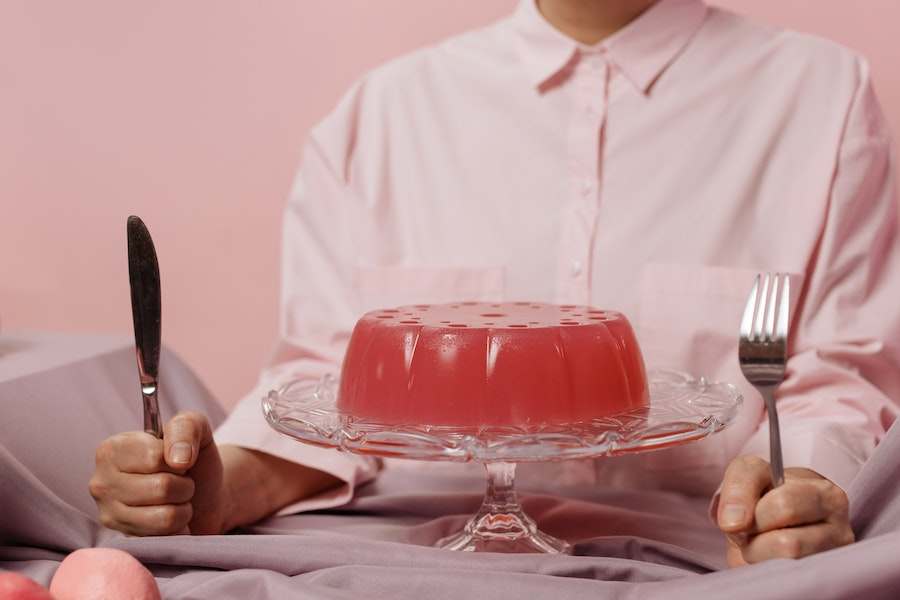For many years, jello has been labeled as a tasty treat, perfect for parties or as a light snack. But it turns out that jello may not be as harmless as we thought, as some people report experiencing diarrhea after consuming it. So, can jello really cause diarrhea? To answer this question, we must take a closer look at the various components of jello, as well as its effects on our digestive health. In this article, we will delve into the science behind jello and examine whether or not it can truly cause diarrhea. We will explore the potential side effects of consuming jello, as well as the underlying causes. By the end of this article, you will have a better understanding of how jello affects your body and if it is truly a cause of diarrhea.
Can Jello Cause Diarrhea?
There is some debate over whether or not jello can cause diarrhea. Some people believe that it can, while others believe that it does not. The jury is still out on this one, but if you are concerned about it, you should avoid eating jello if you are experiencing diarrhea.
What Is Jello?
Jello is a dessert that is commonly served at parties or as a sweet treat. It has a gelatin-based consistency and is often set with an artificial sweetener. Although it is often eaten as a snack, jello is also commonly featured in culinary dishes, desserts, and side dishes such as salads. While jello is more of a food product than a nutrient, it is still important to understand its ingredients. Jello is often made with water, sugar, artificial sweeteners, food gums, and various flavorings and dyes. While the specific ingredients used in jello vary from brand to brand, they also vary in color. Jello is usually dyed artificially, and the color of the jello may be an indicator of which artificial dyes were used. For example, blue jello is often made with food dye number 1 and red jello is often made with food dye number 40.
Does Jello Contain Gelatin?
- Jello does not contain gelatin, so it is safe to eat.
- Gelatin is an ingredient that is used in many types of jello, including sugar-free and low-sugar varieties.
- Gelatin can help to make the jello more firm and stable.
- Gelatin is also used to make gummy bears, marshmallows, and other types of candy.
- Some people believe that eating too much gelatin can lead to diarrhea.
- If you are experiencing diarrhea, it is best to avoid eating any type of jello or gelatin-based food until diarrhea has subsided.
- If you are unsure if a particular food contains gelatin, you can always ask the manufacturer or check the label for ingredient information.
- If you are experiencing diarrhea and think that it may be related to consuming jello or gelatin-based food, it is best to speak with a healthcare professional about your symptoms.
- Always be cautious when consuming any food, even if it seems safe.
- Keep in mind that the safety of any food may vary depending on the individual’s health and dietary needs.
Effects Of Gelatin On Digestive Health
- Gelatin can cause gastrointestinal problems, including diarrhea. However, you should still try it! Gelatin is incredibly beneficial for your body and overall health. It’s rich in collagen, a protein that helps maintain the structural integrity of our cells. Gelatin has also been linked to improvements in joint and skin health, as well as improved digestion.
- There are a few ways to enjoy gelatin without worrying about gastrointestinal problems. For example, you can use gelatin in smoothies or as a replacement for eggs in baking recipes.
- If you experience gastrointestinal problems after eating gelatin, don’t hesitate to speak with your doctor. He or she may be able to recommend a different form of protein that won’t cause issues.
- Be sure to read the ingredients label before you buy gelatin. Some brands contain additives that can cause gastrointestinal problems.
- Finally, drink plenty of fluids while consuming gelatin. This will help prevent dehydration and other problems.
- Gelatin is a great source of protein, and it’s an excellent way to increase your intake of beneficial nutrients. If you’re looking for a healthy snack option, consider investing in some gelatin.
- While there is some debate over whether or not jello can cause diarrhea, it’s still a good idea to be cautious. If you experience problems after eating it, speak with your doctor.
- Gelatin is a great source of protein and other nutrients, and it’s safe to consume if you’re careful about the ingredients. Be sure to read the ingredients label before you buy gelatin, and drink plenty of fluids while consuming it.
- If you’re looking for a healthy snack option, consider investing in some gelatin. It’s a great source of protein and other nutrients, and it’s safe to consume if you’re careful about the ingredients.
- Be sure to read the ingredients label before you buy gelatin, and drink plenty of fluids while consuming it.
Conclusion
As we have seen, jello does not actually contain gelatin, but it is a mixture of ingredients that are known to cause diarrhea. Indeed, the artificial sweeteners found in jello can be harmful to your body, causing diarrhea, bloating, cramping, and other gastrointestinal issues. Indeed, some studies have shown that consuming large quantities of artificial sweeteners can lead to diarrhea and other harmful side effects. And although jello is often served as a tasty treat, it may not be as harmless as we think. In fact, it may actually cause diarrhea. So, before you reach for a serving of jello, remember that it may cause diarrhea.

